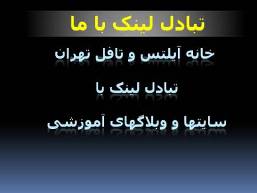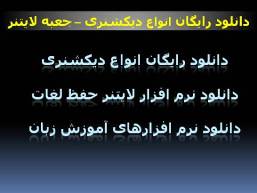تدریس خصوصی آیلتس بهترین استاد آیلتس استاد آرین دکتر آرین کریمی 09125000158
دوره آمادگی آیلتس فشرده کلاسهای آمادگی فشرده آیلتس مرکز تخصصی آیلتس آیلتس چیست کلاس خصوصی آیلتستدریس خصوصی آیلتس بهترین استاد آیلتس استاد آرین دکتر آرین کریمی 09125000158
دوره آمادگی آیلتس فشرده کلاسهای آمادگی فشرده آیلتس مرکز تخصصی آیلتس آیلتس چیست کلاس خصوصی آیلتسدوره فشرده آیلتس استاد آرین
دوره فشرده آیلتس
استاد آرین
مدرس و محقق
آزمونهای بین المللی زبان انگلیسی
متخصص در آموزش آیلتس
انواع جملات شرطی در زبان انگلیسی شرطی نوع 1و 2 و 3
انواع جملات شرطی در زبان انگلیسی شرطی نوع 1و 2 و 3
1. The Zero Conditional (Type 0)
The zero conditional is a structure used for talking about general truths, or scientific facts -- things which always happen under certain conditions.
A zero conditional sentence consists of two clauses, an "if" clause and a main clause (note that most zero conditional sentences will mean the same thing if "when" is used instead of "if"). For example:
If the "if" clause comes first, a comma is usually used. If the "if" clause comes second, there is no need for a comma.
The simple present tense is the tense use in both clauses. Examples:
If you cross an international date line, the time changes.
Phosphorus burns if you expose it to air.
2. First Conditional (Type I)
The first conditional (also called conditional type 1) is a structure used for talking about possibilities in the present or in the future.Type 1: if + present + future.
Example:
The zero conditional is a structure used for talking about general truths, or scientific facts -- things which always happen under certain conditions.
A zero conditional sentence consists of two clauses, an "if" clause and a main clause (note that most zero conditional sentences will mean the same thing if "when" is used instead of "if"). For example:
If the "if" clause comes first, a comma is usually used. If the "if" clause comes second, there is no need for a comma.
The simple present tense is the tense use in both clauses. Examples:
If you cross an international date line, the time changes.
Phosphorus burns if you expose it to air.
2. First Conditional (Type I)
The first conditional (also called conditional type 1) is a structure used for talking about possibilities in the present or in the future.Type 1: if + present + future.
Example:
If I have the money, I will buy this car.
If it's sunny, we'll go to the park.
Peter will be sad if Susan leaves.
If you cook dinner, I'll wash the dishes.
Among other variations the structure if + present + present is also possible. It is used when the results are habitual or automatic. Example: If a commodity is in short, supply prices tend to rise.
3. Second Conditional (Type II)
The second conditional (also called conditional type 2) is a structure used for talking about unreal situations in the present or in the future.Type 2: if + past + conditional
Example:
If I had the money, I would buy this car. (Since I do not have the money I cannot buy any new car). The action in type 2 is characterized by unreality.
If I were you, I would drive more carefully in the rain.
If dogs had wings, they would be able to fly.
Paula would be sad if Jan left.
4. Third Conditional (Type III)
The third conditional (also called conditional type 3) is a structure used for talking about unreal situations in the past. In other words, it is used to talk about things which DID NOT HAPPEN in the past. Type 3: if + past perfect + perfect conditional
Full form : If I had studied harder, I probably would have passed the exam.
Contracted form :If I'd studied harder, I probably would've passed the exam.
Example:
If I had had the money, I would have bought this Audi. (But I did not have it, and so did not buy).
If you had driven more carefully, you would not have had an accident. (You had an accident because you didn't drive carefully enough.)
If we had played a little better, we could have won the game.(We didn't play well, so we lost the game.)
The action in type 3 is characterized by impossibility.
While type 1 and type 2 focus on the present or future, the time in type 3 is the past and signifies a completed action in the past. The condition, therefore, cannot be fulfilled because the action in the if-clause did not happen.
دوره فشرده آیلتس
مدرس استاد آرین
روش تدریس آیلتس - مقاله ای از استاد آرین
Introduction to Teaching IELTS
Teaching IELTS is a combination of English language training and the IELTS examination requirements and procedures in order that when students take this exam they are better able to produce their best results. There is no magic remedy for getting a high band in the exam. Students will still have to have a good knowledge of English to achieve a band score which will make them eligible to enter a University abroad. By taking an IELTS course students are however much better prepared for questions types, exam format and good time keeping. The teaching pages on listening, reading, writing and speaking will discuss the types of questions and exercises which can assist students to become more confident with taking the IELTS exam. Most importantly students should still participate in the process of English language practice and probably most important is oral fluency coupled with the knowledge of what is required to do their very best in the IELTS exam. There are many students from Asia who have had 6 years or so English language training but still cannot speak it, they can however quote nearly every grammar rule in the book.
It is very important to grade students before giving them IELTS training and students should be at least intermediate level or approximately band 4.5 and above after all they are trying to achieve maybe band 6 in IELTS and it is a pointless exercise to allow them to train for IELTS when they cannot possibly achieve it. Most students are very eager to participate in an IELTS course and willingly work at any material which has an IELTS label, however a diet of test material is not on its own the panacea to success. It is a good idea to test the students on entry to a course and give them a taste of the real exam format and timing. In addition, ttest them after a few weeks to monitor their progress and give them tutoring and encouragement on their weaknesses. A staple diet of test material can sometimes only serve to discourage students when they see little or no progress or even achieve a lower test score than previous thus making their learning more difficult. Most Asian students are being pushed along by their families ambition and are encouraged to achieve the impossible in a very short time and for some students this can lead to a downward spiral caught between their families aspirations and their own lack of achievement.
It is highly recommended that any person who is involved in teaching IELTS should experience some of the stress and strains students go through in the lead up and taking of the IELTS test. Actually sitting the IELTS exam can give a teacher great insight into what test day is like and is a good investment in their future career. Even a native English speaker will be surprised how difficult it is to achieve the band 9 score. Being able to share first hand knowledge is of great benefit in the teaching process. When teaching IELTS the teacher has to be extremely well prepared with the resources and especially when proving answers, it is not enough just to give an answer but it is critical to be able to show why and where and detailed reasoning which relates to the answer. A good way to do this is for a teacher of IELTS to take each of the practice material tests before using them and thus better comprehend where students might have difficultie, and of course no peeking at the answers in advance.
Teaching IELTS is a combination of English language training and the IELTS examination requirements and procedures in order that when students take this exam they are better able to produce their best results. There is no magic remedy for getting a high band in the exam. Students will still have to have a good knowledge of English to achieve a band score which will make them eligible to enter a University abroad. By taking an IELTS course students are however much better prepared for questions types, exam format and good time keeping. The teaching pages on listening, reading, writing and speaking will discuss the types of questions and exercises which can assist students to become more confident with taking the IELTS exam. Most importantly students should still participate in the process of English language practice and probably most important is oral fluency coupled with the knowledge of what is required to do their very best in the IELTS exam. There are many students from Asia who have had 6 years or so English language training but still cannot speak it, they can however quote nearly every grammar rule in the book.
It is very important to grade students before giving them IELTS training and students should be at least intermediate level or approximately band 4.5 and above after all they are trying to achieve maybe band 6 in IELTS and it is a pointless exercise to allow them to train for IELTS when they cannot possibly achieve it. Most students are very eager to participate in an IELTS course and willingly work at any material which has an IELTS label, however a diet of test material is not on its own the panacea to success. It is a good idea to test the students on entry to a course and give them a taste of the real exam format and timing. In addition, ttest them after a few weeks to monitor their progress and give them tutoring and encouragement on their weaknesses. A staple diet of test material can sometimes only serve to discourage students when they see little or no progress or even achieve a lower test score than previous thus making their learning more difficult. Most Asian students are being pushed along by their families ambition and are encouraged to achieve the impossible in a very short time and for some students this can lead to a downward spiral caught between their families aspirations and their own lack of achievement.
It is highly recommended that any person who is involved in teaching IELTS should experience some of the stress and strains students go through in the lead up and taking of the IELTS test. Actually sitting the IELTS exam can give a teacher great insight into what test day is like and is a good investment in their future career. Even a native English speaker will be surprised how difficult it is to achieve the band 9 score. Being able to share first hand knowledge is of great benefit in the teaching process. When teaching IELTS the teacher has to be extremely well prepared with the resources and especially when proving answers, it is not enough just to give an answer but it is critical to be able to show why and where and detailed reasoning which relates to the answer. A good way to do this is for a teacher of IELTS to take each of the practice material tests before using them and thus better comprehend where students might have difficultie, and of course no peeking at the answers in advance.










